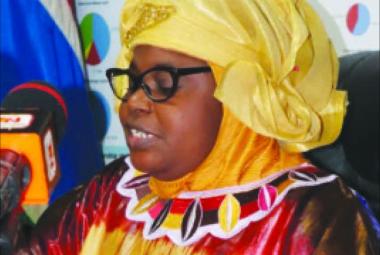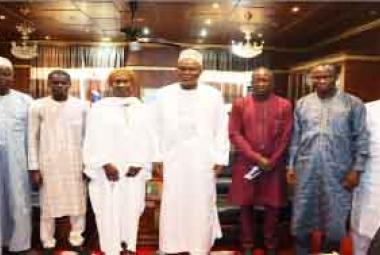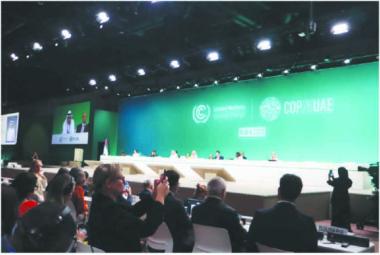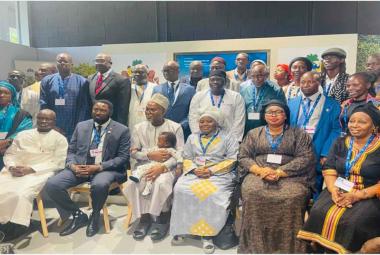|
The Director of the African Union Inter-African Phyto-Sanitary Council (AU-IAPSC) has said that they aim to build the capacity of member States on Integrated Pest Management (IPM) strategies and implementation for sustainable agriculture with a view to address crop productivity to ensure food security across the continent. Dr. Jean Gerard MEZUI M`ELLA was speaking during a two-fold continental workshop in Banjul. While the first was on capacity building of AU member States on IPM strategies and implementation for sustainable agriculture, the second was on enhancing advocacy, awareness, and communication to ensure availability of sufficient safe biological control agents. The programme was adopted by the AU Commission and implemented under the AU-IAPSC programme budget for 2019. Currently, the annual loss due to pests before and after harvest is estimated at about 35-40%. IPM, as one of the tools, has therefore come up as a way of reducing damages caused by pests without harming the environment. In line with the need to address this challenge, the AU-IAPSC, within the framework of implementing its 2019 programme budget, has developed two main activities. One is strengthening the capacity of member States on IPM strategies and implementation of sustainable agriculture. The implementation will help to address reducing factors of crop production and productivity in the continent. The mission of the AU-IAPSC is to protect continental cultivated and wild plant resources from pests, thus prompting food security and environmental protection while facilitating safe trade. “We all know that plants make up 80% of the food we eat and produce 98% of the oxygen we breathe. Invasive Alien Species that are plant pests are responsible for the loss of up to 40% of global food crops, and for trade losses exceeding US$220 billion in agricultural products annually,” Dr Jean Gerard MEZUI M`ELLA explained. The workshop was aimed at addressing new developments in the field of plant protection, provide the most recent IPM tools, practice IPM strategy considering the adaptability of methods and technologies to meet local conditions and to establish links with National Plant Protection Organizations (NPPOs) Member States with a broader view for strengthening cooperation and step up IPM practices by farmers and other stakeholders in Africa. There will be presentations and discussions by experts and participants on IPM strategies, implementation and empowerment work in support of Sustainable Intensification of Crop Production within member States, and an updated status of IPM by the invited member country participants and resource persons. The workshop also included group discussions and recommendations. Ample time will also be allocated for discussions on key issues such as how to define follow-up strategies to continue supporting IPM in support of sustainable agriculture for the continent. In declaring the meeting open the deputy director general Department of agriculture siriyan jobarteh said; I am adequately informed that Integrated Pest Management (IPM) is an approach that combines different management strategies to control a pest. The president of the republic of The Gambia,His excellency Adama Barrow, through the office of the honourable minister would like to register his appreciation for all the efforts in developing IPM and biological control strategies.In a similar way, I would like to commend the Plant Protection Services for their efforts and hard work in reaching out to farmers even in the most remote communities and I hope they continue to work towards the countries development plans and the ministry’s vision. The office of the honourable minister would like to reiterate its support to the National Plant Protection Organisations, in developing a regulatory framework and an IPM program. I would like to call on other donor agencies and organisation to strengthen the capacity of the different Plant Protection Organisations of AU member states in developing and implementing IPM and biological control for sustainable agriculture. I declare the workshop open. |
AU –JAPSC meeting underway in Banjul






